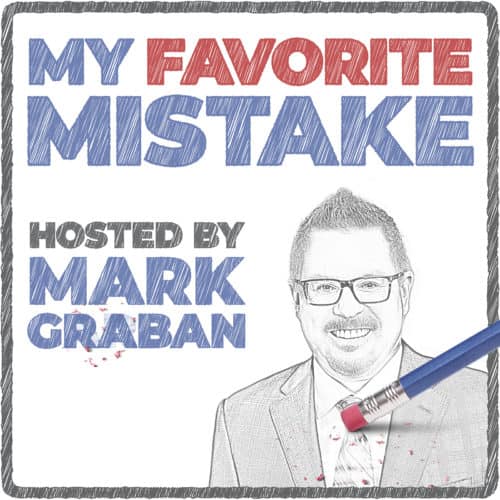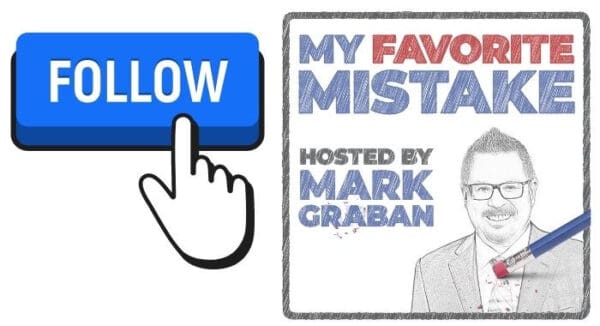During the pandemic, I've found myself not writing as much… not blogging as much. I'm not sure why exactly. I guess I just have a lot on my mind that's not Lean related. I still share articles and some brief commentary about them on Twitter and LinkedIn.
I'm not giving up on blogging… but it's been a bit of a hiatus.
You might have noticed that I am, however, doing more podcasting. I've created, launched, and hosted a new series (which continues) called “Habitual Excellence.”
I'm still doing weekly podcasts in my “Lean Blog Interviews” series. I'm still doing “Lean Whiskey” podcasts with Jamie Flinchbaugh every month or so.
As much as I like writing and sharing my own thoughts, I do enjoy interviewing others — hearing what they have to say and helping amplify their voices.
So, since I've been podcasting for almost 15 years, I have often been pitched by PR firms — offering me guests for my podcast. But, since “Lean Blog Interviews” is a pretty tight niche, I've found myself saying “no” to some people who would have been very interesting guests… but they just weren't a fit.
Finally, instead of saying, “No, thanks,” I decided to create a way where I could say, “Yes, but…”
Yes, I'd love to interview them… but not for “Lean Blog Interviews” but for my new business podcast. So, after brainstorming and kicking some ideas around with people (including the PR people who had most recently reached out to me), I created a new podcast series that I'm going to launch soon… it's called:
“My Favorite Mistake“

It's a business podcast — it's meant to be a place where business leaders can talk about professional mistakes that have impacted them in what turned out to be a positive way. Although, sometimes the professional mistakes get intertwined with the personal… such is life.
As the podcast description says:
Host Mark Graban (author of books including “Measures of Success” and “Practicing Lean“) interviews business leaders who share reflections about their “favorite mistake.” Our greatest learnings come from our mistakes and failures. Some mistakes end up opening new doors, while some are just learning opportunities that provide a foundation for future growth and success. This podcast is not a cliché job interview question… it's a real conversation.
Initial guests will include:
- Kevin Harrington, one of the original Shark Tank “sharks”
- Rep. Will Hurd (R-Texas)
- Jim Benson, co-author of “Personal Kanban”
- Greg Jacobson, MD, CEO of KaiNexus
In fact, it was a PR firm pitching Kevin Harrington that really got me thinking, “It would be cool to interview one of the sharks!” So, that episode has been recorded… as have others.
Tomorrow, I have an interview scheduled with a sitting U.S. Congressman… to talk, I think, about a mistake they made in the private sector. I'll announce that once it's actually been recorded.
OK, now I can tell you… it's Will Hurd, as I added to the bullet points above… you can watch a teaser of it here:
I've been interviewing CEOs, business coaches, authors… I've recorded 8 or 9 so far and, when I launch, I'll be releasing these weekly in the podcast feed and on YouTube.
We'll sometimes talk about Lean, but usually not. This is meant to be for a broader business audience, but I do think the themes of being open about mistakes and learning from mistakes will resonate with Lean thinkers… and beyond.
You can listen to the “trailer” preview episode now… and if you're interested in getting the episodes when I launch, please go ahead and subscribe.
A Great Question From a Guest
One of my first guests, Billy Taylor (who I've interviewed before about Lean), asked a great question in our email exchanges to prep for the episode:
“Question for you: After the podcast, what do you want the audience to think, feel, and do?”
Here's my reply:
Great question… I'd hope that, after hearing the podcast, that listeners would:
- Stop and think and reflect about how mistakes have shaped them
- Think about “what is my favorite mistake?” and “how did I learn from that?”
- Feel more brave about speaking up to talk about mistakes
- Take actions to create workplaces where it's safe to talk about mistakes
- Realize that admitting mistakes shows strength and confidence, not weakness
I hope those are thoughts and actions that you're interested in exploring.
Subscribe or Follow:

What do you think? Please scroll down (or click) to post a comment. Or please share the post with your thoughts on LinkedIn – and follow me or connect with me there.
Did you like this post? Make sure you don't miss a post or podcast — Subscribe to get notified about posts via email daily or weekly.
Check out my latest book, The Mistakes That Make Us: Cultivating a Culture of Learning and Innovation:










Hi Mark,
I strongly agree with the fact that we learn the most from our mistakes. Mistakes can cause one to feel embarrassed or ashamed that they have done such a mistake. This causes the person to pay closer attention to details so such a mistake and feeling can never occur again. Mistakes can improve us to be better and can even open new opportunities. Say one of your workers makes the same mistake twice, how would you handle it?
Thanks, Jason Jeronimo
Great question, Jason.
When a mistake happens, how did we react and respond? If we just tell somebody to “Be Careful,” then I wouldn’t expect that to be an effective prevention method.
If the mistake happens again, we really have to look at the process or the systems that we work within. What can we do to error proof this or truly prevent the issue? Did somebody forget to do something? Would a checklist help, for example? Is the checklist being used consistently?